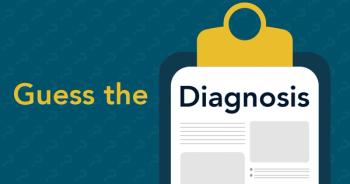
Getting teenagers to slim down
Pediatric obesity is beginning to get the attention it deserves, but persuading young people to exercise more and eat less is an uphill battle. That's why a novel approach reported in the March 2006 issue of Pediatrics (Ebbeling CB, Feldman HA, Osganian SK, et al: Effects of decreasing sugar-sweetened beverage consumption on body weight in adolescents; also at
Working on the assumption that a large percentage of the excess calories that adolescents consume comes from soft drinks, the researchers tried an unusual tactic: combining behavioral counseling over the telephone with home delivery of a calorie-free soda substitute. Researchers enrolled 103 adolescents, between 13 and 18 years old, who reported consuming at least one serving (12 ounces) of a soft drink, juice, punch, lemonade, iced tea, or sports drinks daily. Half were assigned to receive the intervention; the other half were controls. Free noncaloric sweet drinks of the subjects' choice (bottled water or a choice of "diet" drinks) were delivered over a 25-week period, in quantities equal to four servings per day for the subject plus two servings for each additional member of the household. Intervention subjects also received printed educational materials and monthly telephone counseling about the health benefits of avoiding sugar-sweetened beverages. Control subjects were told to continue their usual beverage consumption habits throughout the 25-week period. Both groups received $100 gift certificates to a local shopping mall at the end of the study.
The upshot? In the intervention group, an 82% drop in the consumption of sugar-sweetened beverages and a significant weight loss in those adolescents who were most overweight when the study began. Although this is a small-scale, pilot study, it offers significant support for AAP guidelines that recommend limiting consumption of sugar-sweetened beverages as a way to help prevent overweight and obesity in children.
Newsletter
Access practical, evidence-based guidance to support better care for our youngest patients. Join our email list for the latest clinical updates.









